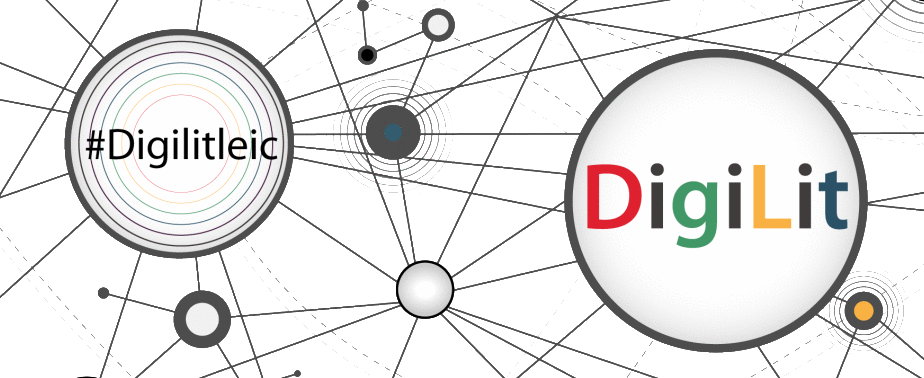Reflections from Policy Debate about copyright and education: How to ensure user rights in education? Copyright reform and Open educational resources
Guest - November 23, 2015 in featured, guestpost, licensing, Open Educational Resources
Reported and written by: Sandra Kucina Softic, M. Sc.; University Computing Centre SRCE, Croatia
The debate (http://oerpolicy.eu/please-join-us-in-brussels-for-policy-debate-on-copyright-and-education/) was held at the European Union on November 17, 2015 and was hosted by Michal Boni, Member of European Parliament (MEP) from Poland. The debate focused in particular on user rights: the freedom of educators and learners to use resources in the process of education.
Introduction to the debate:
Freedom to use educational resources is a fundamental issue in education. It can be ensured either by copyright rules or through sharing of Open Educational Resources (OER). The European Commission communication on the modernisation of copyright rules has defined educational exceptions as an issue that requires action in the European reform planned for 2016. At the same time, recent policy developments once again prove the importance of Open Educational Resources: UNESCO members have just committed to supporting OERs within the Education 2030 Framework for Action. OECD will soon publish a new report on “Open Educational Resources. A Catalyst for Innovation”. The event will focus on the European level of policy making, with the goal of discussing possibilities of strengthening European policies and programs.
 Picture1: MEP M. Boni opens the debate on copyright reform and OER
Picture1: MEP M. Boni opens the debate on copyright reform and OER
The debate was organized by Centrum Cyfrowe and Communia as the part of the ExplOERer project. On behalf of the organizer the meeting was moderated by A. Tarkowski.
Mr. Alek Tarkowski reported on document Foundations for OER Strategy Development (http://oerstrategy.org) which provides concise analysis of where global OER movement currently stands. Intention of this document is to serve as a starting point for conversations about strategies for mainstreaming OER and extending its reach and impact globally.
Speakers at the debate were: Mr Dominic Orr (Consultant, OECD), Ms Teresa Nobre (Legal Lead, Creative Commons, Portugal) and Ms Josie Fraser (social and educational technologist, Leicester City Council, UK). Over 40 people participated at the debate.
In his introduction Mr. Orr gave an overview on the OECD report: Open Educational Resources- a Catalyst for Innovation which will be published on December 1, 2015. In this report highlighted are three key potentials of OER:
- digital technologies have become ubiquitous in daily life and OER can harness the new possibility to afforded by digital technology to address common educational challenges
- OER are a catalyst for social innovation, which can facilitate changed forms of interaction between teachers, learners and knowledge
- OER have an extended lifecycle beyond their original design and purpose. The process of distribution, adaptation and iteration can improve access to high quality, context-appropriate educational materials for all.
 Picture 2: Mr. D. Orr presenting OECD report
Picture 2: Mr. D. Orr presenting OECD report
The report also focuses on the contribution of OER to six educational changes that concern educational systems today:
- fostering the use of new forms of learning for the 21st century
- fostering teachers’ professional development and engagement
- containing public and private costs of education
- continually improving the quality of educational resources
- widening the distribution of high quality educational resources
- reducing barriers to learning opportunities
Ms Teresa Nobre reported on the different national laws of the EU member states regarding the quotations, compilations and derivatives. National laws are often vague and in unclear language, and certain acts are allowed in face to face teaching but not in online context. Quotations are usually for free, but only 16 member states allow quotes of full-sized images. In preparations for teaching teachers often make compilations of learning materials. But some countries don’t allow it for free. At the moment only 12 member states allow teachers to make a non-commercial compilation without payment. Teachers often need to translate materials and want to use them in their work, some countries do allow it but 10 member states do not permit translations for educational purposes.
Suggestion is to establish single mandatory exception to ensure EU–wide educational uses of copyrighted works. Emphasis should be on limitation of the purposes not users. There is a need for stronger harmonization between member states. Possible solution is Digital Single Market (http://ec.europa.eu/digital-agenda/en/digital-single-market) in which the free movement of persons, services and capital is ensured and where the individuals and businesses can seamlessly access and exercise online activities under conditions of fair competition, and a high level of consumer and personal data protection, irrespective of their nationality or place of residence. The Digital Single Market strategy (http://ec.europa.eu/priorities/digital-single-market/docs/dsm-communication_en.pdf) has been adopted in May 2015 and aims to open up digital opportunities for people and business and enhance Europe’s position as a world leader in the digital economy.
Ms. J. Fraser stressed was that teachers create amazing resources but they need training not only in technologies but also in methodologies and abilities to integrate technology into the educational process. Also there is an increasing trend towards making educational contents and resources freely available. Still lots of issues have not been settled, especially copyright issues. Academic staff is often not aware of open licensing and Creative Commons. Although the academic staff have a good experience with CC, it doesn’t solve all the problems. Copyright issues is still present and need to be regulated.
 Open Education Working Group
Open Education Working Group 






